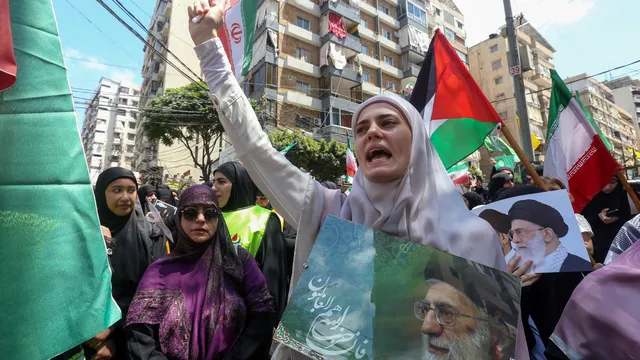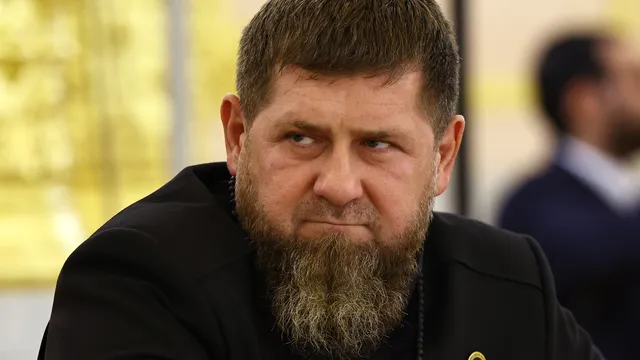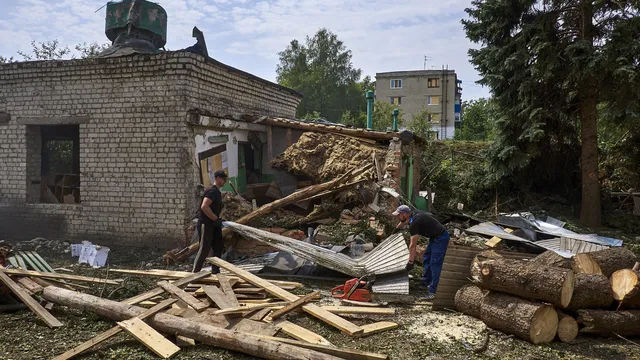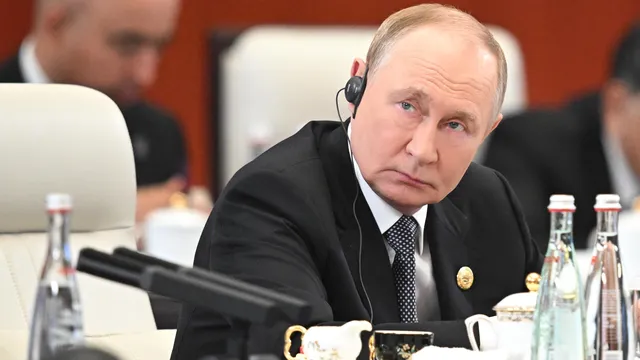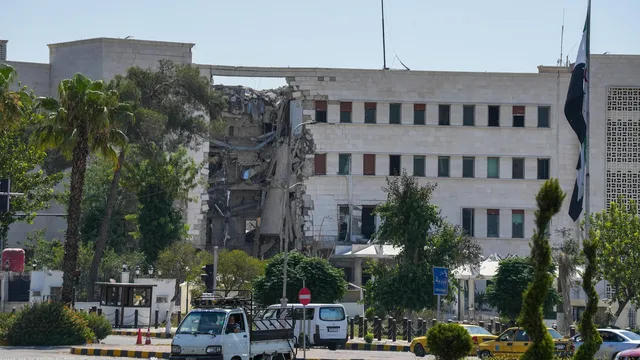Iran has announced that it will not resume nuclear talks with the United States until Israel stops its military action. This comes amid ongoing strikes and rocket fire between the two countries, with the Israeli army chief warning that the war will be “long.”
Explosions were heard in Tehran, and the Iranian news agency Fars reported that air defenses had been activated. Israel intensified its air strikes, while Iran responded with missile attacks. “The campaign is not over. Although we have achieved significant successes, difficult days lie ahead,” General Eyal Zamir said in an address to the public.
Meanwhile, a meeting was held in Geneva between the foreign ministers of Britain, France, Germany, and Iranian representative Abbas Araqchi. After the talks, Araqchi said that Iran was ready to consider the possibility of diplomatic dialogue, but only if the military aggression ceased.
He stressed that his country remains open to talks with European countries and is ready for a new meeting “in the near future.” French Foreign Minister Jean-Noel Barrot said he had called on Iran to enter into negotiations with all parties, including the US, even before the strikes were halted.
He said that no lasting solution could be found through military force and warned that it was dangerous to bet on regime change in Iran after Israeli Prime Minister Benjamin Netanyahu did not rule out the possibility of eliminating Supreme Leader Ali Khamenei.
In Tehran itself, the situation is tense. Most shops remained closed, markets were empty, and people preferred to stay at home. Some traders said they were not afraid of war, but of its economic consequences, which are already being felt.
The Israeli offensive, which began on June 13, includes strikes on nuclear and military targets, but has also hit residential areas. In response, Iran fired hundreds of rockets and drones. Israeli authorities reported at least 25 dead and dozens wounded. A hospital in Haifa reported 19 casualties in the latest attack, including one person in serious condition.
According to Israeli data, more than 450 missiles and about 400 drones have been fired at the country so far. Iran claims that at least 224 people were killed in the Israeli strikes, including military commanders, nuclear scientists, and civilians, but has not updated the death toll. The US-based non-governmental organisation Human Rights Activists News Agency estimates that at least 657 people have been killed in Iran so far, including 263 civilians.
The Israeli army said it had struck missile sites in southwestern Iran, as well as dozens of other targets, including a nuclear research center. Later in the day, sirens sounded again after Iran fired more missiles. The Revolutionary Guard said it had struck military bases and air complexes.
US President Donald Trump said he would decide within two weeks whether the US would join the conflict. It became clear that another aircraft carrier would be deployed to the Middle East, the third in the region.
British Foreign Secretary David Lamy warned that the situation was extremely dangerous and added that Iran must never have nuclear weapons. The International Atomic Energy Agency confirmed that although Iran is enriching uranium to 60%, a level that no other non-nuclear-weapon state maintains, there is still no evidence that it has all the components necessary to build a nuclear warhead.
In an interview with the German newspaper Bild, Israeli Foreign Minister Gideon Saar said he did not believe in diplomatic success with Iran, noting that all efforts so far had failed. He recalled that Israel supports Trump's 2018 decision to withdraw from the nuclear agreement.
Turkish President Recep Tayyip Erdogan warned that the escalation was approaching a “point of no return” and stressed: “This madness must end as soon as possible.” UN Secretary-General António Guterres also called on the parties to give peace a chance.
In this context, Switzerland announced the temporary closure of its embassy in Tehran but said it would continue to represent US interests in Iran. | BGNES, AFP

 Breaking news
Breaking news
 Europe
Europe
 Bulgaria
Bulgaria
